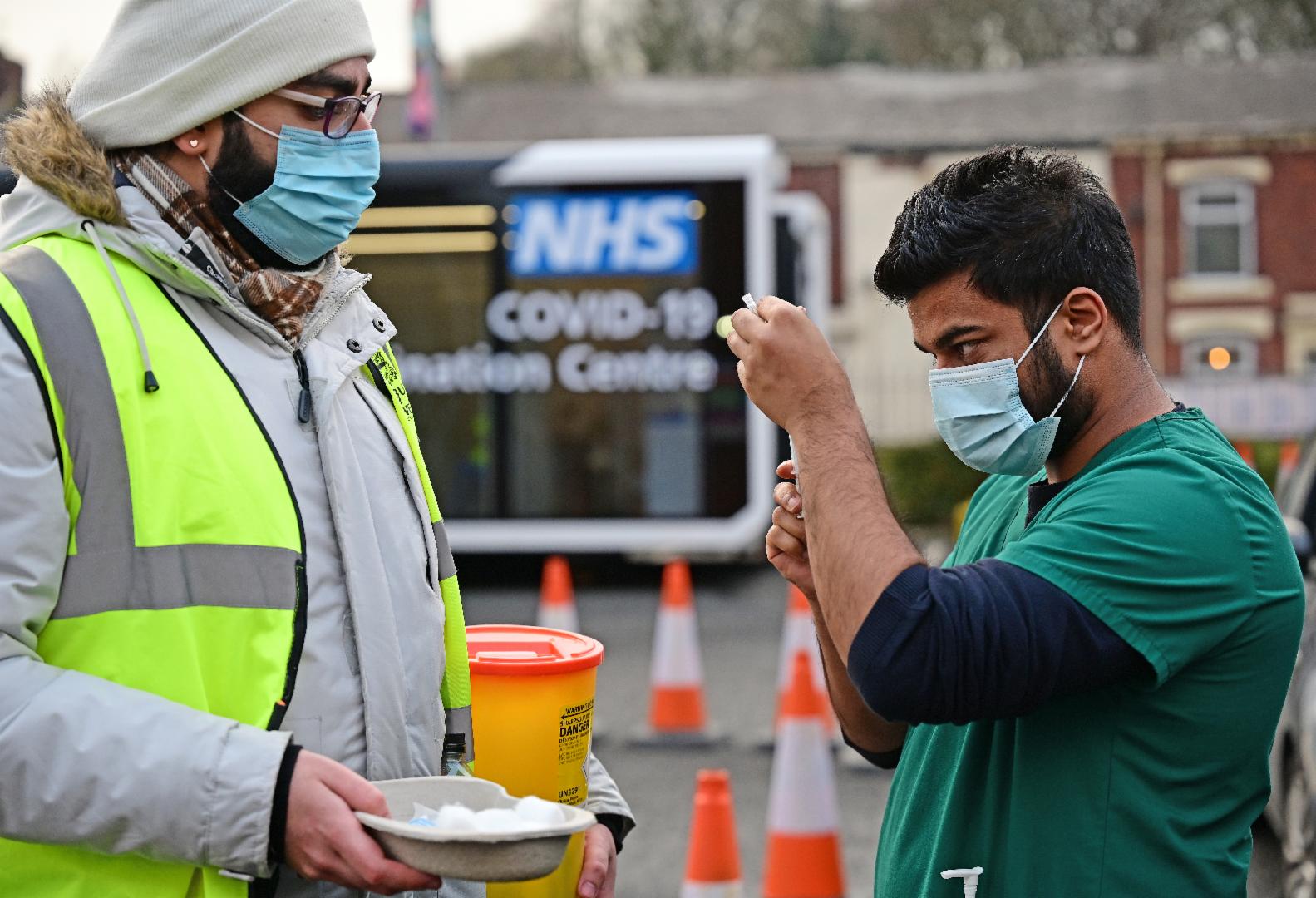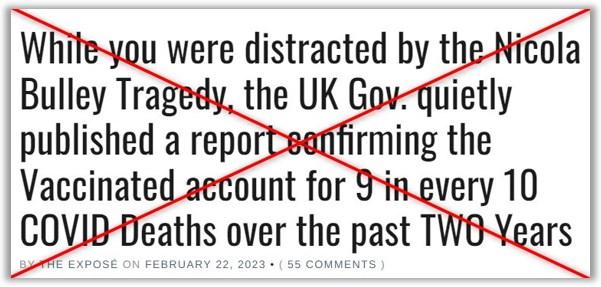
Articles misinterpret UK Covid-19 vaccine data
- This article is more than two years old.
- Published on March 7, 2023 at 18:38
- 2 min read
- By Natalie WADE, AFP USA
"Official figures quietly published by the UK Government reveal that the fully/triple/quadruple vaccinated population has accounted for 9 in every 10 Covid-19 deaths in England over the past two years and 92% of Covid-19 deaths throughout the entirety of 2022," says a February 22, 2023 article.
The story comes from The Expose, a website that AFP has previously fact-checked for publishing inaccurate health information.

The same claim appeared in other articles online, as well as on social media platforms such as Instagram and Twitter.
The posts reference a recent dataset from the United Kingdom's Office for National Statistics (ONS) on deaths by vaccination status in England. But a spokesman for the government agency told AFP they are "highly misleading interpretations of that data."
"When most of the population is vaccinated, most deaths are in vaccinated people," he said in a March 3 email.
More than nine in 10 people in the UK aged 12 or older had received at least one dose of a Covid-19 vaccine as of February 26, according to the ONS. While public health authorities worldwide say the shots help prevent severe illness and death, no vaccine is 100 percent effective.
"We would expect the percent of deaths that are unvaccinated to shrink as the population of unvaccinated people decreases," said Devon Greyson, an assistant professor in the School of Population and Public Health at the University of British Columbia, on March 6.
Vaccine efficacy
The ONS says on its website that the data do not measure how effective the Covid-19 vaccines are at preventing death.
The numbers "account for differences in age structure and population size, but there may be other differences between the groups (particularly underlying health) that affect mortality rates," the agency says.
The ONS spokesman told AFP unvaccinated people "are likely to be younger," which will "reduce deaths in unvaccinated compared to vaccinated."
Jeffrey Morris, director of the Division of Biostatistics at the University of Pennsylvania's Perelman School of Medicine, offered a similar analysis.
"Of course, when the vast majority of the older population is vaccinated, most deaths will be in vaccinated," he said. "But this does not mean that the vaccinated have a higher death rate or certainly that vaccines cause deaths."
He said the raw numbers also do not account for underlying health conditions that may affect each group's mortality risk. Greyson of the University of British Columbia agreed.
"Without appropriate methods to adjust for underlying risks or population size, statistics such as total deaths can be misleading," Greyson said.
In December 2022, American adults vaccinated with an "updated (bivalent) booster" were nearly 10 times less likely to die from Covid-19 than their unvaccinated peers, according to the US Centers for Disease Control and Prevention.
All of AFP's reporting on vaccine misinformation can be found here.
Copyright © AFP 2017-2026. Any commercial use of this content requires a subscription. Click here to find out more.
Is there content that you would like AFP to fact-check? Get in touch.
Contact us




